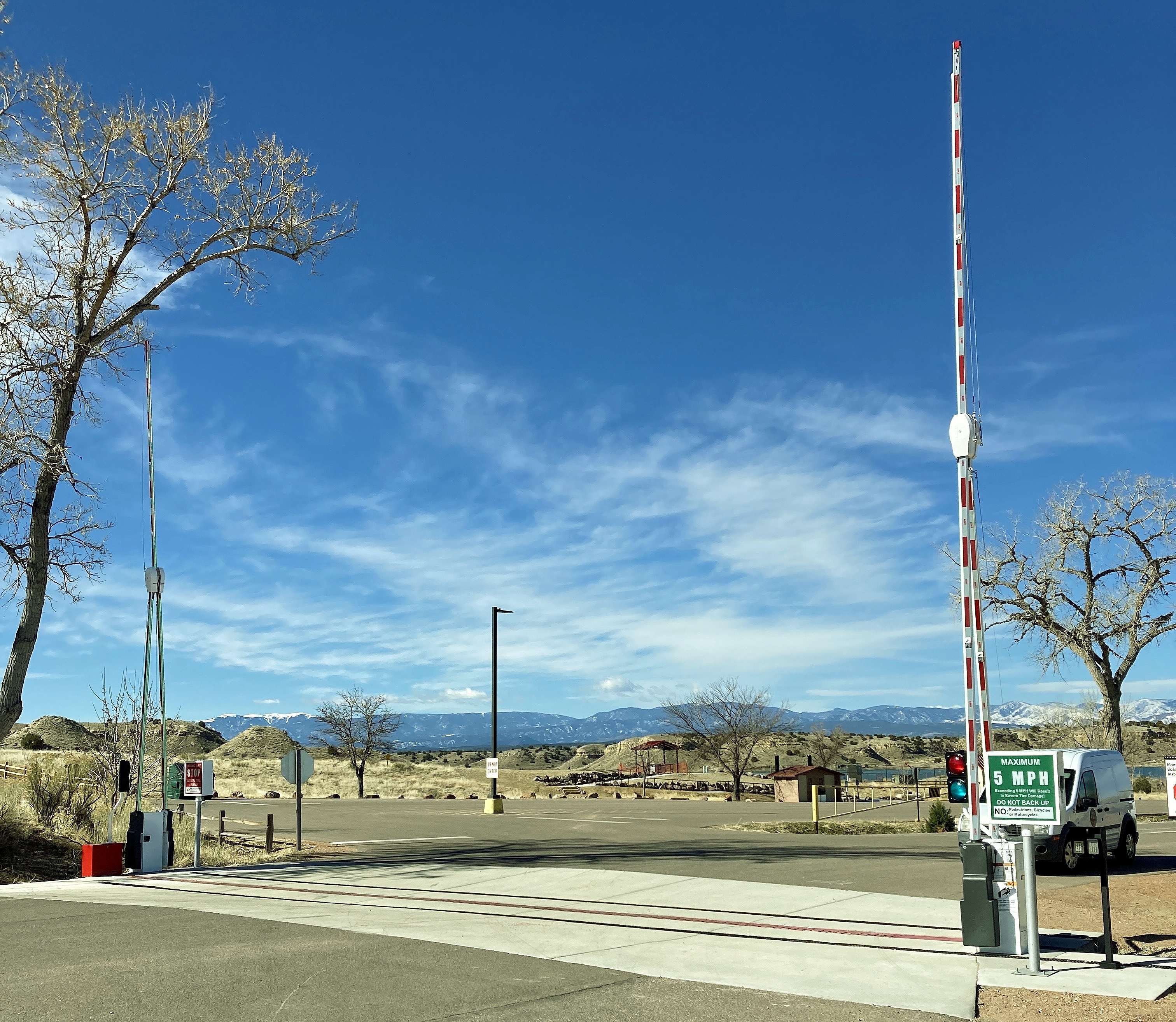Lake Pueblo State Park Installs ‘Exit Only’ Gates to Let Boaters Leave After Hours

Description: Photo courtesy of Colorado Parks and Wildlife.

Lake Pueblo State Park Installs ‘Exit Only’ Gates to Let Boaters Leave After Hours
PUEBLO, Colo. – Beginning April 1, boaters who remain on the water at Lake Pueblo State Park past gate closing times on the two boat ramps will not be prevented from leaving.
A new policy – and new gates – will allow after-hour departures, which have not been permitted since the rise of aquatic nuisance species (ANS) forced Colorado Parks and Wildlife to begin inspecting every boat that enters and leaves state-managed waters.
This winter, Lake Pueblo installed new gates on the south boat ramp that resemble large railroad-crossing guards. They are equipped with sensors – and spike strips – to allow the boaters to leave, but not enter the water after hours.
The change comes with new ANS inspection requirements that boaters will need to strictly follow.
“This is a response to our guests who like to fish and boat late into the night,” said Joe Stadterman, manager of CPW’s busiest park. “We are trying to accommodate them while maintaining the highest defense possible to prevent aquatic nuisance species from entering the lake.”
The new south ramp gates are becoming operational as Lake Pueblo ANS inspection stations shift from winter to springtime operating hours. Beginning April 1, south ramp gates will be open 5 a.m. to 10 p.m. The north ramp operating hours will be 5 a.m. to midnight.
Boats leaving after hours still must follow CPW’s “clean, drain, dry” ANS protocols. However, they will not receive a seal that designates them as clean. They may be required to go through the decontamination station before being allowed to re-enter the water.
In recent years, CPW has aggressively policed boats entering its waters to guard against the invasion of non-native zebra and quagga mussels, in particular.
“Our seasonal hours, combined with the new south ramp gate, give boaters more freedom to come and go at Lake Pueblo,” Stadterman said. “But we will not relax our ANS inspections as we continue to keep Lake Pueblo free of invasive zebra and quagga mussels.”
When ANS inspection stations are open, all trailered or motorized watercraft must be inspected by on-site staff prior to launching on the lake. CPW’s ANS protocols include inspecting watercraft before they enter state waters, decontaminating those with ANS attached, educating boat operators and ensuring that users clean, drain and dry watercraft.
For more information about CPW’s ANS Program and the Mussel-Free Colorado Act, visit https://cpw.state.co.us/aboutus/Pages/ISP-ANS.aspx.
Follow SECO News on Facebook.
Subscribe to the SECO News YouTube Channel.
Press releases Sponsor




.png)


.png)




.png)



.png)


.png)







